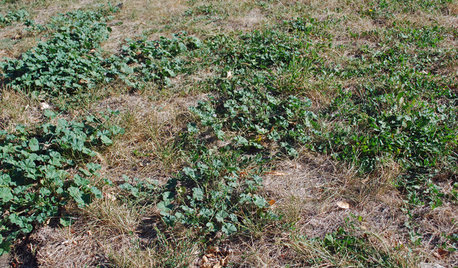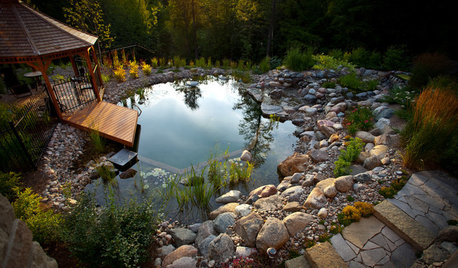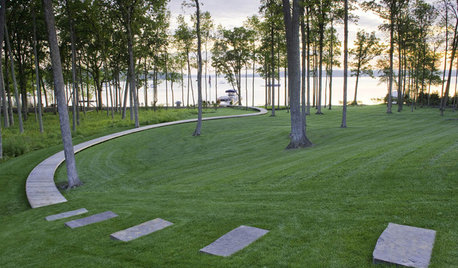Chemical that helps use less water for turf grass
northtexas
12 years ago
Related Stories

SAVING WATERXeriscape Gardens: How to Get a Beautiful Landscape With Less Water
Conserve water and make gardening much easier with the xeriscape approach’s 7 principles
Full Story
GARDENING GUIDESSmall Gem Lawns: More Impact From Less Grass
Instead of letting the lawn sprawl, make it a shapely design element in your yard. You’ll reap benefits both practical and aesthetic
Full Story
GARDENING GUIDESWeed War: When and How to Use Chemical Herbicides
Before you spray, arm yourself with knowledge about which weed killers — natural or synthetic — are right for your yard
Full Story
GARDENING GUIDES8 Unthirsty Plants Help You Save Water in Style
Spend less effort and money on your landscape with drought-tolerant and native plants that liven up your yard
Full Story
LANDSCAPE DESIGNGet Along With Less Lawn — Ideas to Save Water and Effort
Ditch the mower and lower your water bill while creating a feast for the eyes with diverse plantings and gathering places
Full Story
LANDSCAPE DESIGNNatural Swimming Pools: More Beauty, No Chemicals
Keep your skin and the environment healthy with a pool that cleans itself, naturally
Full Story
GARDENING GUIDES5 Great Grasses for a New Lawn
Learn about maintenance, wear tolerance, ideal climate and more for these top turf choices to pick the right one for you
Full Story
EARTH DAYThe Case for Losing the Traditional Lawn
Work less, help the environment and foster connections by just saying no to typical turf
Full Story
GARDENING GUIDESGive Your Turf the Fall Tune-up It Deserves
Treat your battered lawn to a little TLC this fall, and it will reward you with lush, healthy grass come spring
Full Story
LANDSCAPE DESIGNIs It Time to Consider Fake Grass?
With more realistic-looking options than ever, synthetic turf can be a boon. Find the benefits and an installation how-to here
Full StoryMore Discussions






nearandwest
andy10917
Related Professionals
Simpsonville Landscape Architects & Landscape Designers · 70037 Landscape Architects & Landscape Designers · Fillmore Landscape Architects & Landscape Designers · Manchester Landscape Contractors · Brownsville Landscape Contractors · Galt Landscape Contractors · Harrisburg Landscape Contractors · Los Banos Landscape Contractors · Mashpee Landscape Contractors · Mission Landscape Contractors · Pompton Lakes Landscape Contractors · Rockland Landscape Contractors · Washington Landscape Contractors · Goldenrod Landscape Contractors · Raytown Landscape ContractorsnorthtexasOriginal Author
dwrecktor
nearandwest
dchall_san_antonio
jdo053103
nearandwest
colleen_clifford_aquatrols_com
dchall_san_antonio
texas_weed
texas_weed
nearandwest
nearandwest
Colleen_Clifford
texas_weed
coachgrumpy
nearandwest
texas_weed
nearandwest
nearandwest
dchall_san_antonio